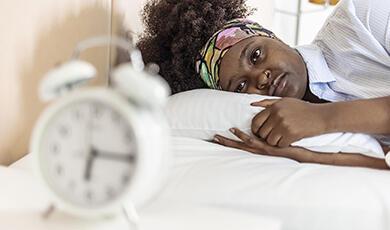Press release: Living with Mental Health

Preventing ‘adverse childhood experiences’ would be very beneficial for mental health
Worst-off 20% of children are four times more likely to have a severe mental health condition
We need to start thinking about mental well-being from birth
Embargo: Mon 6 Feb 7pm
We would like to invite you to a free public Gresham lecture on Living with Mental Health that looks at the causes and the solutions, with a particular focus on the importance of childhood.
The speaker, Professor Monica Lakhanpaul is a Professor of Integrated Community Child Health at UCL Great Ormond Street Institute of Child Health with a particular specialism in mental health and young people.
In the lecture she will explain Mental health problems have been on the rise after the pandemic, with an increasing number of people of all ages experiencing anxiety, depression and even eating disorders. While common, with 1 in 8 globally experiencing mental health problems in their lifetime, some develop chronic mental health problems that can have debilitating physical symptoms. So how can we help reduce the stigma, improve access to care and treat them most effectively? What can you do to stop problems developing, and which interventions should policy-makers use?
Professor Lakhanpaul will say: “As so much of a child’s brain development happens at a young age, negative experiences in childhood can have lifelong physical and psychological consequences. These potentially traumatic events are called Adverse Childhood Experiences (ACEs) and can be grouped into three categories: Abuse (e.g. physical, emotional, sexual), Neglect (physical and emotional) and Household Dysfunction (Felitti, 1998). Adults experiencing at least four ACEs are at increased risk of poor health outcomes and chronic childhood stress has also been shown to brain structural and functional abnormalities (Dannlowski et al. 2012; Frodl & O'Keane 2013; Jedd et al. 2015 ) and impact on adult mental well being. This means that preventing ACEs could have huge benefits to public health, the CDC projecting it could reduce depression by up to 44% (CDC, 2019). Increasing inequalities, following COVID and cost of living crisis put children and young people at further risk from these adverse experiences."
“The role of psychological and social factors in mental health mean that social inequalities are an important factor in developing mental health conditions. Living in a deprived area increases the risk of exposure to ACEs and creates financial stress. It has been shown that the worst-off 20% of children are four times more likely to have a severe mental health condition (Gutman, 2015) and that low-income households also had higher rates of mental health problems during the pandemic (Fancourt,2022). Individuals who find themselves experiencing marginalisation are also at higher risk. For example, it has been shown that the LGBTQ+ community is also at greater risk of mental health problems. Stonewall released a report in 2018 that showed that in the previous year, 52% of LGBT people experienced depression and 46% of trans people and 31% of LGB were suicidal (YouGov, 2018). Ethnic minorities are also at risk, with black women being more likely to experience anxiety and depression, black men more likely to be detained by the Mental Health Act, and having worse treatment outcomes (MHF, 2021; Cabinet Office, 2017; Gov.uk, 2021).”
Professor Lakhanpaul says "To tackle high rates of mental health we need to begin thinking more about mental well-being. We need to start thinking about this from when a child is born right the way through to when they are an adult. Of course, we need to ensure that treatment and therapies are accessible and available but we also need to put resources into prevention and looking at individuals holistically.’’
ENDS
Notes to Editors
You can sign up to watch the hybrid lecture online or in person; or email us for an embargoed transcript or speak to Professor Lakhanpaul: l.graves@gresham.ac.uk / 07799 738 439
Read more about Professor Monica Lakhanpaul and her work.


 Login
Login

